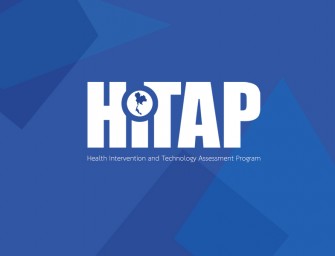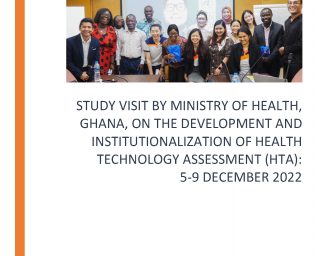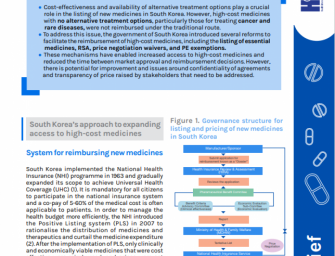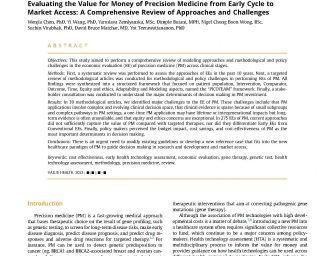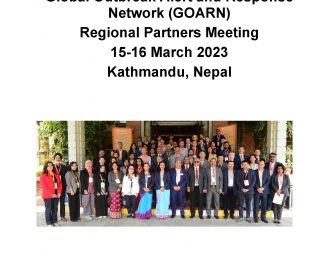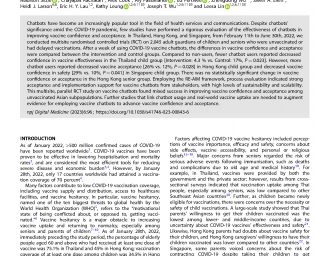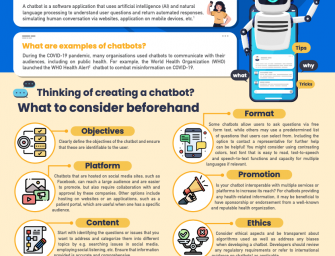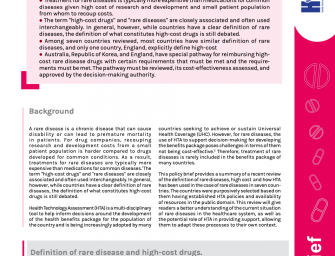This website uses cookies so that we can provide you with the best user experience possible. Cookie information is stored in your browser and performs functions such as recognising you when you return to our website and helping our team to understand which sections of the website you find most interesting and useful.
Concept Note: HTA guideline Project (A stepwise guide for HTA guideline development)
The focus of HTA in this project is HTA for benefit package design. The main output will be a step-by-step guide for HTA methods and/or process guidel ...Read more
Mission Report: Study Visit by Ministry of Health, Ghana, on the Development and Institutionalization of Health Technology Assessment (HTA)
The Ministry of Health (MoH) in Ghana has been seeking to incorporate Health Technology Assessment (HTA) into their decision-making process to achieve ...Read more
Policy Brief Issue 25: South Korea’s Experience of Reimbursing High-Cost Medicines
Cost-effectiveness and availability of alternative treatment options play a crucial role in the listing of new medicines in South Korea. However, high ...Read more
Evaluating the Value for Money of Precision Medicine from Early Cycle to Market Access: A Comprehensive Review of Approaches and Challenges
Generic reference cases for economic evaluation (EE) of “cure-based” health technologies may not fit into the new healthcare paradigm of precision med ...Read more
Report: Global Outbreak Alert and Response Network (GOARN) Regional Partners Meeting
The Global Outbreak Alert and Response Network (GOARN) is a network of more than 250 technical institutions and networks globally that respond to acut ...Read more
Effectiveness of chatbots on COVID vaccine confidence and acceptance in Thailand, Hong Kong, and Singapore
Chatbots have become an increasingly popular tool in the field of health services and communications. Despite chatbots’ significance amid the COVID-19 ...Read more
Thinking of Creating a Chatbot in Public Health? Here are some tips and tricks for you
A chatbot is a software application that uses artificial intelligence (AI) and natural language processing to understand user questions and return aut ...Read more
Policy Brief Issue 24: Experience in Using HTA for Expanding UHC Benefit Package to Cover Rare Diseases and High-Cost Drugs among Seven Middle and High-Income Countries: A targeted literature review
This policy brief provides a summary of a recent review of the definition of rare diseases, high cost and how HTA has been used in the case of rare di ...Read more
Policy Brief Issue 24: Experience in Using HTA for Expanding UHC Benefit Package to Cover Rare Diseases and High-Cost Drugs among Seven Middle and High-Income Countries: A targeted literature review
This policy brief summarise findings from literature review on definition of 'rare disease,' and the use of HTA to support policy decisions around rar ...Read more



